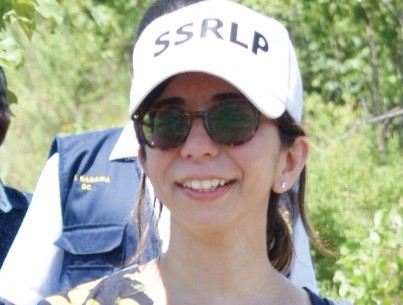World Bank commits support to social protection initiatives
The World Bank says it will continue to help Malawi with adaptive social protection initiatives to enhance resilience of vulnerable communities and boost their socio-economic well-being.
The bank’s programme leader for human development in East Africa Aneesa Arur said this on Monday during a visit to Chitalo Village, Traditional Authority (T/A) Amidu in Balaka District.

She visited the area to appreciate water and land conservation activities under the Climate-Smart Enhanced Public Works Programme, a sub-component of the Social Support for Resilient Livelihoods Project funded by the World Bank.
Arur said they will still strive to strengthen the national platform for the safety nets.
She said: “Climate and economic shocks are critical to our partnership with Malawi going forward.
“We are committed to helping the communities with safety nets that protect them and build resilience and human capital.”
Commenting on the implemented activities under the programme, Arur said they are motivated with the impact that has contributed to the development in all aspects of the communities’ lives.
She said they are supportive of increasing the wages participants receive after doing communal tasks.
Ministry of Finance and Economic Affairs poverty reduction and social protection director Kate Langwe said the interventions in the programme have socially and economically empowered households to fight against poverty, which is rampant in rural areas.
“People’s lives are being changed for the better as the programme addresses deficiencies in their adaptive capabilities to be resilient to climate change and economic shocks,” she said.
Langwe said they have revised the wages in the programme and are waiting for approval from the steering committee by the end of February.
T/A Amidu commended the Bretton Woods institution for supporting initiatives that help her subjects to alleviate poverty.
“We have embraced interventions to conserve the environment that have enhanced our resilience and increase agricultural productivity,” she said.
One of the participants, Razak Matola promised to sustain the interventions as they are critical to their development.
The participants in the programme receive K28 000 after 24 days of doing communal tasks.





